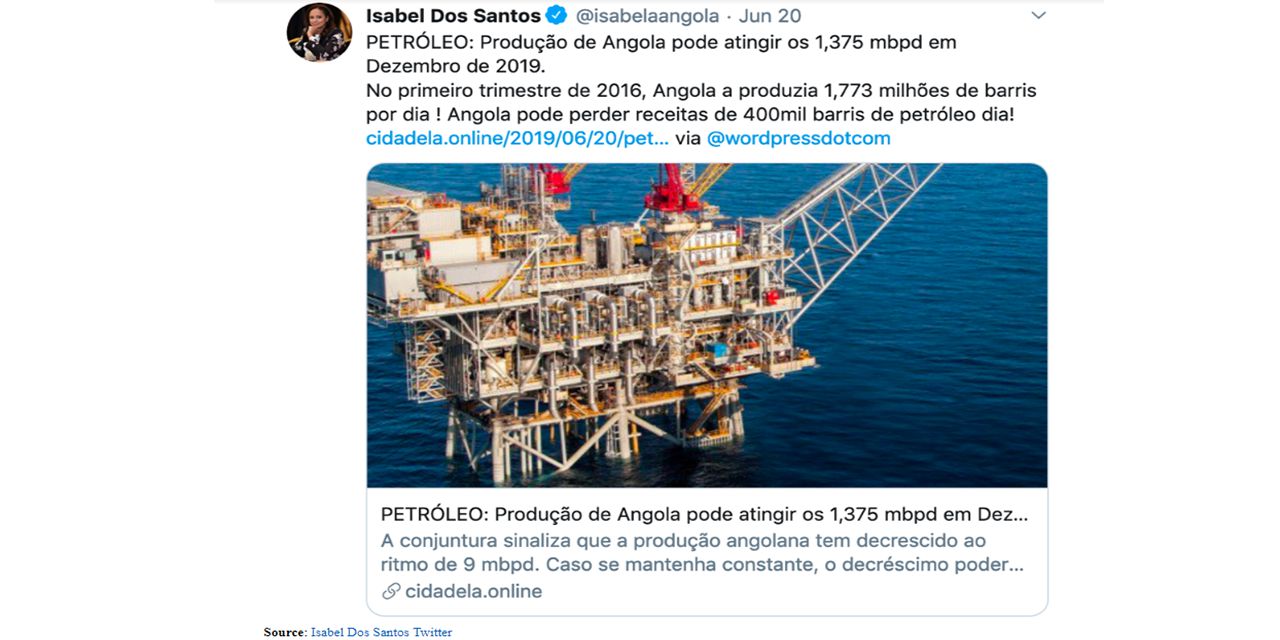Angola has tremendous potential on the African continent, and upon the world stage. A developing economy, fraught with challenges, it also boasts a treasure trove of opportunities for venture capitalists, entrepreneurs, and investors to tap into. Recently, Angola hosted the Angola Oil & Gas 2019 conference in the capital city, Luanda. As a rising star on the continent vis-a-vis the energy industry, Angola is partnering with many other powerbrokers such as South Africa to foster greater economic cooperation between the nations.
Currently, the South African Oil & Gas Alliance (SAOGA) is positioned to develop midstream and upstream oil and gas value chain sectors in the Southern Africa region, and in South Africa. Official government data (August 22, 2019) now places Angola at #2 in the sub-Saharan Africa region in terms of oil production. The country currently produces 1.37 million BPD (barrels per day) of crude oil, and approximately 17,904,500,000 ft.³ of natural gas. Currency volatility and price weakness has hampered economic growth in the oil & natural gas sector, forcing production to remain well below capacity.
Hedging against Crude Oil? Why Business Leaders Are Risking It
The government of Angola is anticipating a spike in oil production from 2020-2021, which will facilitate greater economic growth, employment opportunity, and access to additional markets. The country has substantial oil reserves in the region of 9 billion barrels of crude and an estimated 11 trillion ft.³ of natural gas. It is ironic that Angola is a net importer of refined petroleum products, with 80% of oil fuel, lubricants, asphalt, aviation fuel, diesel, and gasoline coming from other countries.
20% of demand is serviced domestically, indicating substantial room for development of the country’s oil and natural gas sectors. Bloomberg crude oil and natural gas prices indicates the prevailing price of WTI crude oil at $56.56 and Brent crude oil at $60.91 per barrel, while natural gas is priced at $2.43/MMBtu. Incremental increases in pricing have an outsized impact on the Angolan oil and natural gas sector. The 52-week trading range for Brent crude oil is $53.96 on the low end and $81.96 on the high end, indicating significant whipsaw behavior in pricing patterns which clearly impacts developing economies like Angola. Yet, despite price increases, several business leaders are pushing for alternatives.
The EIA report on Angola claims that the economy is ‘heavily dependent’ on hydrocarbon production. As a result of oil price volatility, the fluctuating fortunes of Angola’s economy places its workforce in jeopardy. The country has expanded into other forms of energy-efficient operations including hydroelectricity, solar power, and wind power, all of which are outlined in detail in Angola’s 2025 Vision. The forward-thinking mentality of the Angolan entrepreneurial sector is evident with notable business leaders like Isabel Dos Santos and others who are actively advocating for economic change, economic diversity, and economic prosperity.
Leading Angolan Companies Seek to Diversify the Economy
Mainstream thought dictates that countries with vast supplies of energy resources should ideally tap into those resources and maximize them for the benefit of all. However, oil-rich nations like Saudi Arabia, Bahrain, and Qatar are exploring other energy options for multiple reasons. The nonrenewable nature of crude oil and natural gas is reason enough to invest in other energy sources such as solar, wind, and hydropower. Dos Santos is positioned to lead from the front with Efacec which is a leader in energy and engineering capabilities. Like many other business leaders, she recognizes that decarbonization remains the foremost challenge in the world today.
Key players now understand that investment in consumption electrification and renewable energy sources is the only way to combat the growing problems of greenhouse gas emissions and reliance on fossil fuels. Efacec is currently developing electric vehicle technology for implementation in the country for the next generation of Angolans. It is noteworthy that industry leaders recognize that the ranking electric vehicle market players include Siemens AG, Tesla, ABB, and Efacec, among others. The entire industry is expected to register a compound annual growth rate of 48.3% from 2019 through 2026, and one of the companies is preparing the groundwork in Angola.
The Angola Energy 2025 plan is focused on pivoting away from fossil fuels in favor of renewable energy sources in the country. Already, substantial investment has taken place in hydroelectric energy provision through various initiatives, including the Development Plan for the Energy and Water Sector. Angola is seriously lacking in outlying areas, but urban areas are also pressuring existing frameworks. Leaders recognize the many challenges faced by the broader business sector, particularly when it comes to manufacturing output and productivity and lack of electrical power to maintain steady operations. Analysts point to a 60% electrification rate in the country by 2025 if 9.9 GW of power is achieved.
That the majority of Angola’s refined crude oil and natural gas resources are imported points to an urgent need to redevelop the energy sector to cater to a growing cadre of female business leaders, world-class entrepreneurs, and innovators. Companies like Efacec are preparing blueprints to introduce new-age tech into the country, and so far signs are positive.









